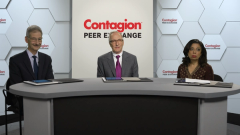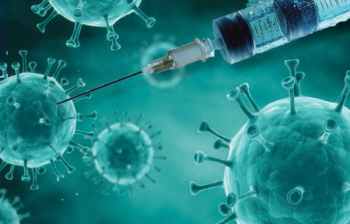
Prevalence and Challenges Associated With Multi-Drug Resistant HIV Infections
Joseph Eron, MD and Daniel R. Kuritzkes, MD, discuss how to define “heavily treatment-experienced” and also discuss the prevalence of various types of drug resistance.
Episodes in this series

Joseph Eron, MD: Hello, and welcome to this HCPLive® Peer Exchange titled “Heavily Treatment-Experienced Patients and Management of Multidrug-Resistant HIV-1 Infection.” I’m Joseph Eron, a professor at the University of North Carolina and the director of the clinical core for the UNC [University of North Carolina] Center for AIDS Research in Chapel Hill, North Carolina. Joining me for this virtual discussion are 2 of my colleagues. First, Dr Daniel Kuritzkes.
Daniel R. Kuritzkes, MD: I’m Dr Daniel Kuritzkes, the chief of the division of infectious diseases at Brigham and Women’s Hospital and the Harriet Ryan Albee Professor of Medicine at Harvard Medical School in Boston Massachusetts.
Joseph Eron, MD: And we have Monica Gandhi.
Monica Gandhi, MD, MPH: I’m Dr Monica Gandhi. I’m a professor of medicine at the University of California, San Francisco and the medical director of the HIV clinic, called Ward 86.
Joseph Eron, MD: We’re going to discuss treatment selection when managing multidrug-resistant HIV disease and clinicians’ approach to ensuring treatment compliance. We’ll discuss current and emerging regimens with high-resistance barrier and challenges and solutions for their adoption and clinical practice. Let’s get started with the first topic. Dan, this 1 is going to you. Despite advances in HIV treatment over the decades, what challenges remain for heavily treatment-experienced individuals? Can you define heavily treatment experienced?
Daniel R. Kuritzkes, MD: With heavily treatment experienced individuals, 2 principal issues come up. One is individuals who have developed resistance to most of the drugs available. Getting a regimen that will fully suppress virus replication is a big challenge. But more and more, we’re recognizing that there’s another group who should also consider highly treatment experienced: individuals who, for 1 reason or another, can’t tolerate the drugs we have. As good as the drugs are that we typically use, there are individuals for whom they’re not right. They need other options.
Joseph Eron, MD: Yes, I totally agree. A lot of terms are floated around when we talk about multidrug resistance. Some highly treatment-experienced individuals are suppressed, and some have viremia. But let’s compare acquired HIV drug resistance with transmitted drug resistance? How are those 2 things different?
Daniel R. Kuritzkes, MD: A critical issue about drug resistance with HIV is that for virtually all patients, when resistance comes about, it happens because the virus in the person is becoming resistant to drugs they’ve taken. This is usually because they’re not fully suppressed on 1 regimen or another. That’s very different from the way we think about resistance to antibacterial drugs. With them we worry about the spread of a highly drug resistant E [Escherichia] coli in the intensive care unit or something like that. That’s very different from the situation with HIV.
However, there can be transmission of drug resistance, in which somebody becomes infected with an HIV strain from a person who had previously been exposed to drug and has resistance. Those viruses, although not always as transmissible as the wild type, can be transmitted. We know that with resistance to nucleoside reverse transcriptase inhibitors, the non-nucleoside drugs like efavirenz and nevirapine, and fortunately to a much lesser extent the protease inhibitors or integrase inhibitors—those resistant viruses can get transmitted. Fortunately, we’re seeing that the prevalence of resistance in individuals newly diagnosed with HIV is stabilizing, and the prevalence of multidrug resistance is going down.
Joseph Eron, MD: Yeah, it’s going down.
Transcript Edited for Clarity
Newsletter
Stay ahead of emerging infectious disease threats with expert insights and breaking research. Subscribe now to get updates delivered straight to your inbox.


































































































































